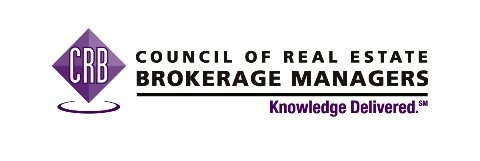A few months ago, I was a speaker again at the NAR 2007 convention. (I think that was my 16th year!) I talked about the four components of ‘new’ leadership. Why is switching leadership style so important? The world has changed, and, if you’re an agent or a manager, you need to lead effectively in all situations (lead your clients, lead your fellow agents, lead your team). And, there’s one style component that has a huge impact on both culture and productivity, yet few of us realize it:
1. Standards-driven organization: In almost every presentation I do for leadership, I ask attendees if they have productivity standards (minimum expectations) in their companies. Out of 200 attendees, about three will raise their hands. No wonder agents don’t believe they must be ‘on the team’, pulling their own weight in production. No wonder managers are wondering how to get their agents to go to work. No wonder there are challenges recruiting and retaining! No wonder agents are having great challenges attempting to get their buyers’ agents to pull their load. And, no wonder agents are wasting time with buyers who won’t buy and sellers who overprice!
How to Assure no One will Work very Hard
Having no standards de-motivates. In a recent study by The Ripple Effective of Negativity Leadership IQ, 87% of the 70,305 executives, managers, and employees interviewed said working with a slacker actually made them want to change jobs; 93% said it hampered their development or decreased their productivity. So, without standards, real estate leaders are de-motivating their good performers!
Here’s what Roy Disney says about effective leadership, from the New Leadership Paradigm:
Leadership is the ability to establish standards and manage a creative climate where people are self-motivated toward the mastery of long-term constructive goals in a participatory environment of mutual respect compatible with personal values.
There are many theme parks, but they aren’t Disney. What is the difference? One huge difference, and you know this if you’ve visited various theme parks, is that Disney has high standards.
Agents: What would it mean to your time management and bottom line if you had high standards for your clients? (Studies show that top producers qualify carefully and ‘tell the truth attractively’ to both buyers and sellers, so they don’t waste anyone’s time).
Agents: See my new for 2008 program, On Track to Success in 30 Days System for Experienced Agents. It has a 30 day program with standards that assure your success.
Managers: See the coaching system for On Track to Success, Managers' On Track to Success Coaching for Experienced Agents. I’ve given you dozens of tips on how to create standards and hold agents accountable to standards and goals.
Real Life has Standards
A few months ago, I hired a personal fitness trainer. Do you think she has standards? You betcha. Are they higher than I would like to exert myself? You betcha. Is this making me more fit? Right again. It’s true any time we get coached. Our coach always urges us to do more than we would be willing to do on our own. So, we get better faster.
High Standards has a Positive Message
Working with people with high standards sends a message to each one of us:
You’re worth it. You can do it. I believe in you.
Obviously, you would not be working with that leader if that leader didn’t think you ‘had it’, would you? That belief drives us to do much better than we thought we could do. It’s inspiring. And, in this challenging real estate market, we need all the inspiration we can get! So, we’re all in leadership, whether it’s with our clients, with other agents on our team, as a manager, or as a parent. Setting standards and encouraging meeting them is the greatest gift you can give to someone—or can give yourself.
Carla Cross, CRB, MA, is president of Carla Cross Seminars, Inc. and Carla Cross Coaching, specializing in real estate sales and management. Cross, an international speaker and coach, is the author of 6 internationally published books, 20 productivity programs, and is a winner of the National Association of Realtors’ National Educator of the Year award. Contact her at www.carlacross.com or 425-392-6914.

